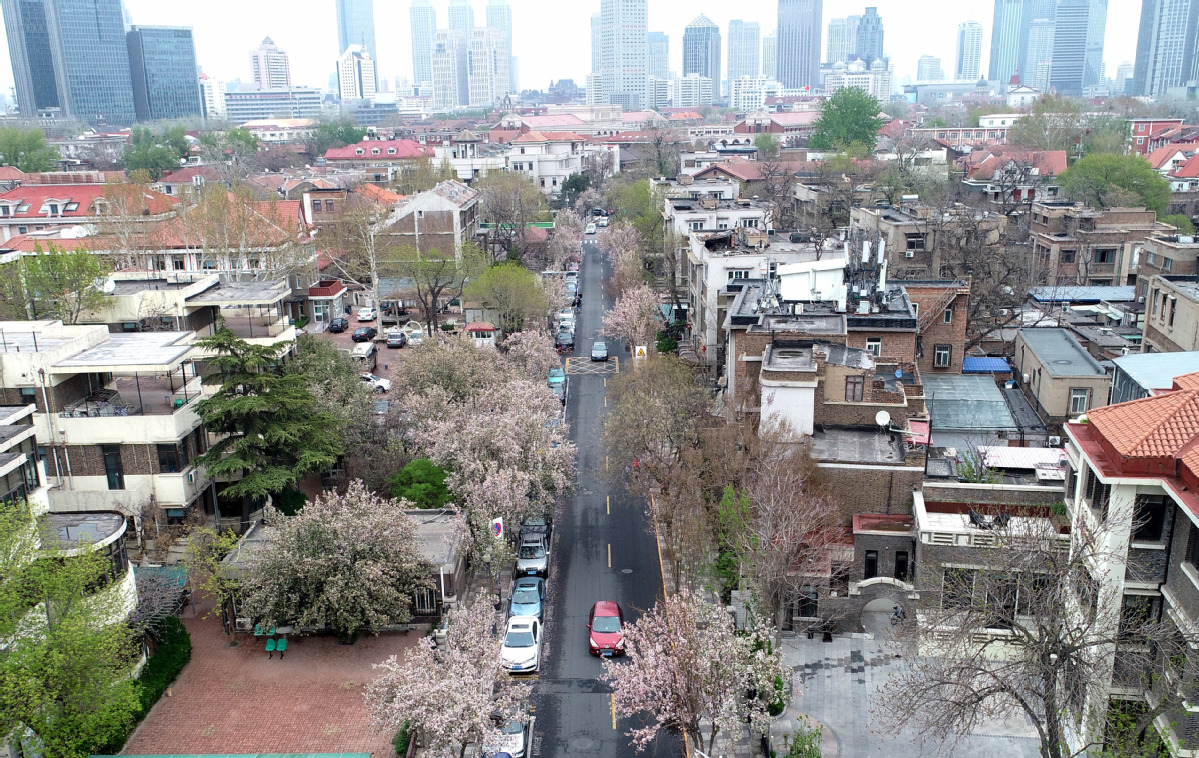Tour guide keeps precinct's history alive


Retiree, 74, invigorated by sharing story of Tianjin's Five Greater Avenues with visitors
Jin Pengyu has made it his lifelong passion to research the colorful history of one of Tianjin's famous tourist attractions - the Wudadao district, also known, as the Five Greater Avenues.
The 74-year-old retiree volunteers to lead tour groups that often include foreigners, some of whom want to see how their ancestors once lived in the northern city.
During the tours, Jin brings to life the vivid history of the buildings in the 1.28-square-kilometer block, which has shining examples of both Chinese and Western architecture.
The district has hundreds of villas in various Western styles built in the 1920s and 1930s. The former US president Herbert Hoover lived at No 6, Machang Avenue. The Scottish Olympian Eric Liddell, whose gold-medal winning feats and dedication to his faith were featured in the film Chariots of Fire, lived in Chongqing Road when his parents worked as missionaries.
Many prominent figures from Chinese history also once resided in Wudadao, including imperial family members who moved from Beijing after the Qing Dynasty (1644-1911) ended.
Zhang Boling, founder of the 100-year-old Nankai University, along with military heroes in the War of Resistance Against Japanese Aggression (1931-1945), affluent businessmen, politicians and artists, also called the district home.
Jin said many overseas visitors hope he can help them find where their parents or grandparents once lived.
One success story was finding the former home of Austrian Richard Frey (1920-2004), who fled to China during World War II and became a renowned communist. His residence was located by Jin and cultural and historical expert Zhang Shaozu with the help of an old photograph.
News of the find was published in a Chinese newspaper, which Frey's son read about. In 2015, with Jin's assistance, he made a trip to visit his father's home and talk to people in the neighborhood.
"When he saw the house I led him to, he could't help but cry," Jin recalled.
For many Chinese tourists, his illuminations on the Western-style buildings, their tenants and their history, make it more than "just a walk around" an old part of the city. One Chinese tourist wrote in an online review that Jin's tours were a chance to "get a stronger taste of the history of Tianjin and modern China".
Jin said comments such as those are what have driven him for more than 30 years, adding he has taken more than 160 tour groups every year.


















